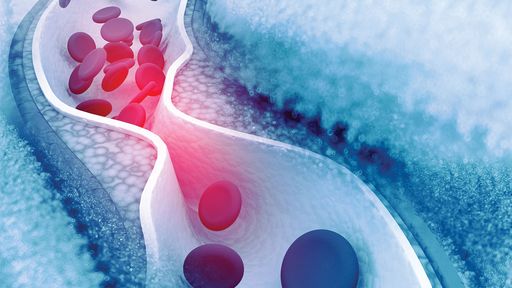
The continually improving treatment of coronary artery disease (CAD) has benefited from advancements in cardiology, interventional cardiology and cardiovascular surgery, a three-pronged multidisciplinary approach backed by accumulating research (J Am Heart Assoc 2020;9[8]:e05035). Appropriate, evidence-based options—from diet and exercise programs, pharmaceutical regimens, percutaneous coronary intervention (PCI) procedures, and cardiac surgery—have their place across the continuum of care.
“With the advent of new technologies and techniques, we’re able to treat more and more complex disease using percutaneous approaches and avoid open heart surgery,” explained Joseph De Gregorio, MD, the executive director of cardiovascular services and chief of invasive cardiology at Englewood Health, who is also an interventional cardiologist at Bart De Gregorio, MD, LLC, in Glen Ridge, part of the Englewood Health Physician Network.
Studies have shown that PCI will ease symptoms and improve quality of life (Am Fam Physician 2018;97[6]:376-384). PCI, first developed 40 years ago, also has advanced with new technology and techniques. Research, like that presented at the American College of Cardiology 2020 annual meeting, has found that modern cardiac stenting can have comparable results to that of coronary artery bypass grafting (Circulation 2020;141[18]:1437-1446).
“The evolution of minimally invasive interventional technology has been transformational,” Dr. De Gregorio said. “And it continues to evolve, so there will be more and more that we can do for patients to fix their coronary arteries.” As one example, patients who have chronic total occlusions have alternative treatments that don’t require open heart surgery. Less invasive PCI may be an option.
Alongside these developments, procedures are now indicated for sicker patient groups. “We can now perform interventional cardiology procedures for patients who, in the past, were considered high-risk and may not have had many or any options, especially those with very poor heart muscle function,” said Aron Schwarcz, MD, an interventional cardiologist with Cardiovascular Associates of North Jersey. “Patients considered as high-risk surgical candidates, or even too high risk for surgery, can now be treated safely with stenting procedures. It gives us another
alternative to surgery.”
For patients who are having a heart attack or who have severe CAD and are undergoing a PCI procedure, Englewood Health cardiologists use the Impella (Abiomed) device, the world’s smallest heart pump. The Impella device is inserted into the heart through the femoral artery, which then mimics the heart’s pumping and emptying actions, explained Dr. Schwarcz, who co-leads Englewood Health’s chronic total occlusion program.
“With the Impella device, patients who have severely weakened heart muscle or are in congestive heart failure with unstable vital signs—for example, from a severe heart attack—can be treated in a safe manner, where in the past there might not have been an option for them,” Dr. Schwarcz said. “This is especially important for patients who are too sick for cardiac surgery. We now have more treatment options for saving this person’s life.”
Dr. De Gregorio agreed: “We use it in cases of acute [myocardial infarctions] who are hemodynamically unstable or hypotensive, in complex coronary interventions, and in people who have bad left ventricle function or weak heart muscles—that is, cardiomyopathies.”
A New Approach to Calcified Arteries
One potential roadblock to a successful PCI has been arterial calcification, which can create an environment too rigid to allow expansion of the artery, said Omar Hasan, MD, an interventional cardiologist at Englewood Health. However, a new device, recently given premarket approval by the FDA, has overcome this obstacle through lithotripsy, a technique often used to fracture kidney stones. The device, Shockwave Intravascular Lithotripsy (Shockwave Medical Inc.), uses sonic pressure waves to create fissures in the artery’s calcium deposits, allowing the artery to then be expanded at a low pressure to introduce a stent.
A recent prospective, multicenter trial of the device (N=431) published in the Journal of the American College of Cardiology (2020;76[22]:2635-2646) found procedural success in 92.4% of cases (P<0.0001), with 92.2% of patients avoiding any major adverse cardiovascular events (P<0.0001). The Shockwave device is now available at Englewood Health—one of relatively few sites in the Northeast, according to Dr. De Gregorio, and further proof that Englewood Health’s interventional capabilities are at the forefront of the science.
“Calcification has been a major limiting factor for successful PCI, so having this new technology in our armamentarium can open up procedures to more patients,” Dr. De Gregorio said.
Along with the latest generation of medical devices and medications, there is the intangible asset of clinical care, of which Englewood is rightly proud. “Caregivers get to know their patients well,” Dr. Hasan said. “It’s more of a personal touch, personal care, and the best physicians available,” he said.
Posted August 27, 2021

